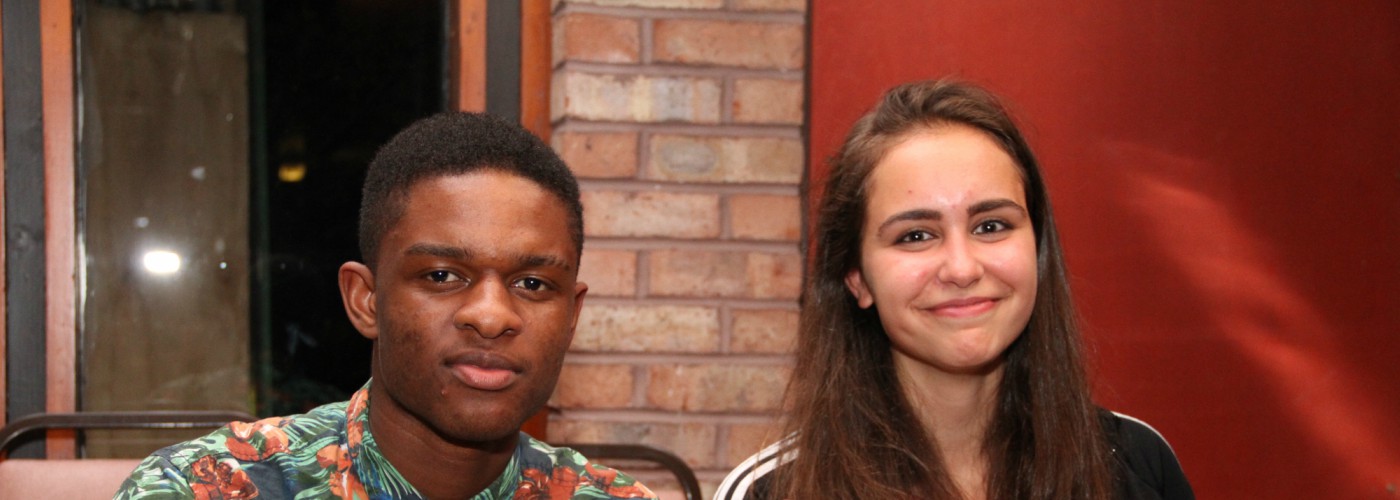
Understanding the Gateways Programme
Gateways is the University of Manchester’s flagship pre-16 Widening Participation Programme. It provides targeted IAG, academic enrichment experiences, and education-based aspiration building activities for pupils from socio-economic groups less likely to progress into HE. At each visit pupils are able to develop their knowledge of HE, reflect on their aspirations and explore their skills development.
What is Widening Participation?
Widening Participation (WP) addresses patterns of under-representation in higher education. For the University of Manchester, a key ambition for teaching, learning, and the student experience is for there to be no barriers to studying and no boundaries to learning. The University has a number of different methods for supporting WP target groups in exploring and engaging with HE from Year 6 to Year 13, including campus visits, workshops with academics, IAG presentations, and contextual data offer-making. Gateways is one of the longitudinal interventions providing support for a cohort of c.1800 pupils from 48 Greater Manchester schools continually from Year 7 to Year 11.

Who are Widening Participation initiatives designed to support?
Every pupil will have questions about their education and their future and will need support to find out how and when to make the right decisions for them. However, when it comes to HE study, we know that some groups find it harder to access that support and knowledge due to economic and social barriers. We believe that access to HE should be an option for all young people to consider when planning their futures; that’s why WP activities are targeted at the following pupils and communities who we know are underrepresented in higher education in the UK and need additional support to access up-to-date IAG about HE and its benefits:
- those from low income backgrounds and low socioeconomic groups;
- those from postcodes where participation in higher education in low;
- those who are the first in their generation to consider higher education;
- those who attend schools and colleges where performance is below the national average;
- those who are care experienced;
- those who have a disability;
- those who are young carers;
- those who are estranged from their families;
- those from under-represented ethnic backgrounds
That’s why when you sign up to Gateways, we ask you to only invite pupils to join the programme who meet one of the following four criteria:
- no parental experience of HE
- have a disability
- are care-experienced
- are young carers.
We know it can be hard to identify the right pupils but we hope you understand why we ask you to do this and why it’s so important. To help us monitor the success of the targeting of the programme, we ask you to complete a lot of paperwork. That’s because Gateways is monitored and its outputs and outcomes form part of the University’s monitoring return to the Office for Students (OfS) as evidence it is meeting its institutional aims and targets in supporting WP pupils access and thrive in HE.

The role of the Gateways link teachers
Gateways link teachers are an essential part of our ability to deliver the programme effectively. As we’ve already mentioned, we deliver Gateways to c.1800 pupils from a total of 48 Greater Manchester schools annually.
We rely on you to:
- Select pupils who fit the Gateways criteria in Y7
- Bring those same pupils back for their return visits for Y8 to Y11
- Circulate and collect completed paperwork from pupils and their parents as this process is essential to delivering safe events, and allows us to monitor the success of the programme in terms of targeting and future HE destinations for participating pupils
- Motivate and enthuse pupils ahead of and during their visits
Thank you in advance for all your hard work in helping us deliver Gateways. Here is some further guidance on what we need schools to do ahead of and during their Gateways visits for 20/21.

Widening Participation and the University of Manchester – the key stats
We identify and attract the most talented students to Manchester, regardless of their backgrounds. Our research shows that there are no significant differences in the entry qualifications, nor in the degree attained, between students from widening participation backgrounds and the rest of the student populace. In our most recent intake review we found:
- We’re in the top quintile of the Russell Group for the number of students from areas of low participation in higher education and lower socioeconomic backgrounds.
- We have one of the highest number of students from low-income backgrounds in the English Russell Group, with more than a quarter of our undergraduate students coming from low income households (less than £25,000 per year)
- About a third of our new UK undergraduates receive financial support through our means-tested Manchester Bursary.
You can find out more by exploring our Annual Report on Widening Participation (PDF) which provides concrete examples of the wide range of work we’re involved in across the student lifecycle. You can also read our current Access and Participation Plan (PDF) with the Office for Students, which sets out how we aim to improve equality of opportunity in higher education across all areas of the student lifecycle. Our 2020-21 plan was approved in August 2019 and you can find details of this and our previous plans here.
Due to the Covid related national and regional lockdown policies, we will be delivering Gateways virtually this year (academic year 2020/21). Click on the box below to find out more about this year’s virtual delivery model.
Gateways online delivery plan 2020/21
We have created an alternative delivery programme of 2 hours IAG sessions
Outreach at the University of Manchester
Visit the University of Manchester’s Schools and Colleges webpages to find out about other outreach opportunities for and you school
